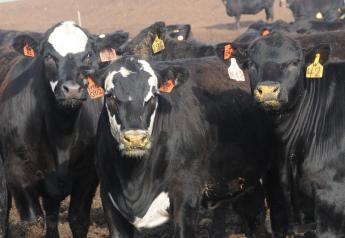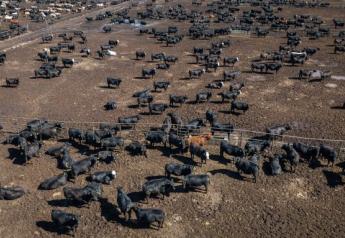Livestock Producers Encouraged to Keep Good Records

USDA's Farm Service Agency Administrator Juan M. Garcia is urging livestock producers impacted by natural disasters, including the drought in the West and the unexpected early winter storm across the Midwest, to keep thorough records. "This includes livestock and feed losses and any additional expenses that are result of losses to purchased forage or feed stuff," Garcia notes.
The 2014 farm bill provides ranchers with a strong farm safety net, Garcia notes. He continues, "We'll provide producers with information on new program requirements, updates and signups as the information becomes available. In the meantime, I urge producers to keep thorough records." Doing so will help them to take advantage of livestock disaster programs the 2014 farm bill restarted and retroactively reinstated back to 2012.
Specifically, FSA recommends owners and producers record the following pertinent information regarding natural disaster consequences, including:
- Documentation of the number and kind of livestock that have died, supplemented if possible by photographs or video records of ownership and losses;
- Dates of death supported by birth recordings or purchase receipts;
- Costs of transporting livestock to safer grounds or to move animals to new pastures;
- Feed purchases if supplies or grazing pastures are destroyed;
- Crop records, including seed and fertilizer purchases, planting and production records;
- Pictures of on-farm storage facilities that were destroyed by wind or flood waters;
- Evidence of damaged farm land.
Visit www.fsa.usda.gov or an FSA county office to learn more about FSA programs and loans. For information about USDA's Farm Bill implementation plan, visit www.usda.gov/farmbill.







